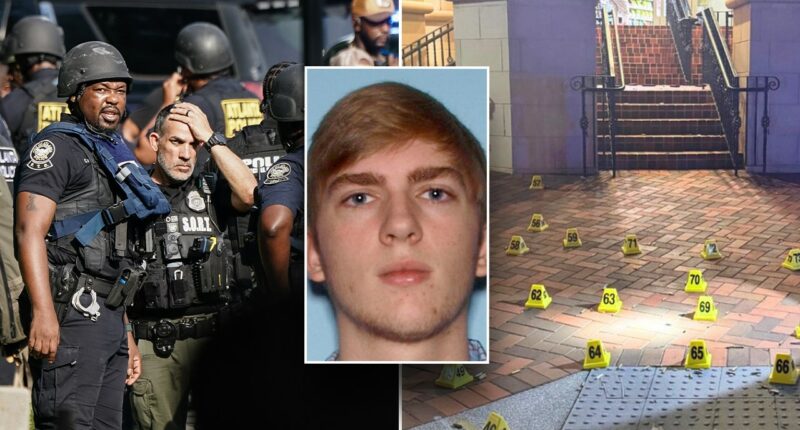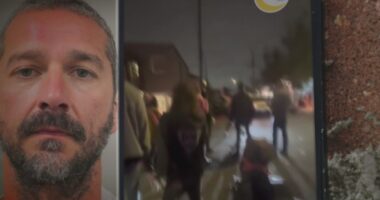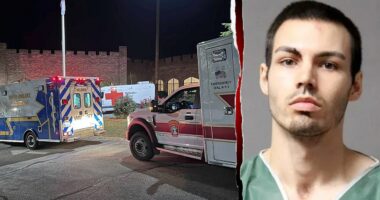Share this @internewscast.com
The man accused of killing a police officer while shooting at the U.S. Centers for Disease Control and Prevention (CDC) headquarters in Atlanta on Friday had previously been reported to police for suicidal thoughts and launched the deadly attack with his father’s weapons to send a message against COVID-19 vaccines, authorities said Tuesday.
Patrick Joseph White, 30, is suspected of killing DeKalb County Police Department Officer David Rose, 33, shortly before 5 p.m., in an attack that saw him unload around 200 rounds into six CDC buildings. White’s driver’s license image was released publicly for the first time on Tuesday.
Rose, who previously served as a Marine in Afghanistan and joined the DeKalb County Police Department in September 2024, was responding to the scene and died from gunshot wounds.
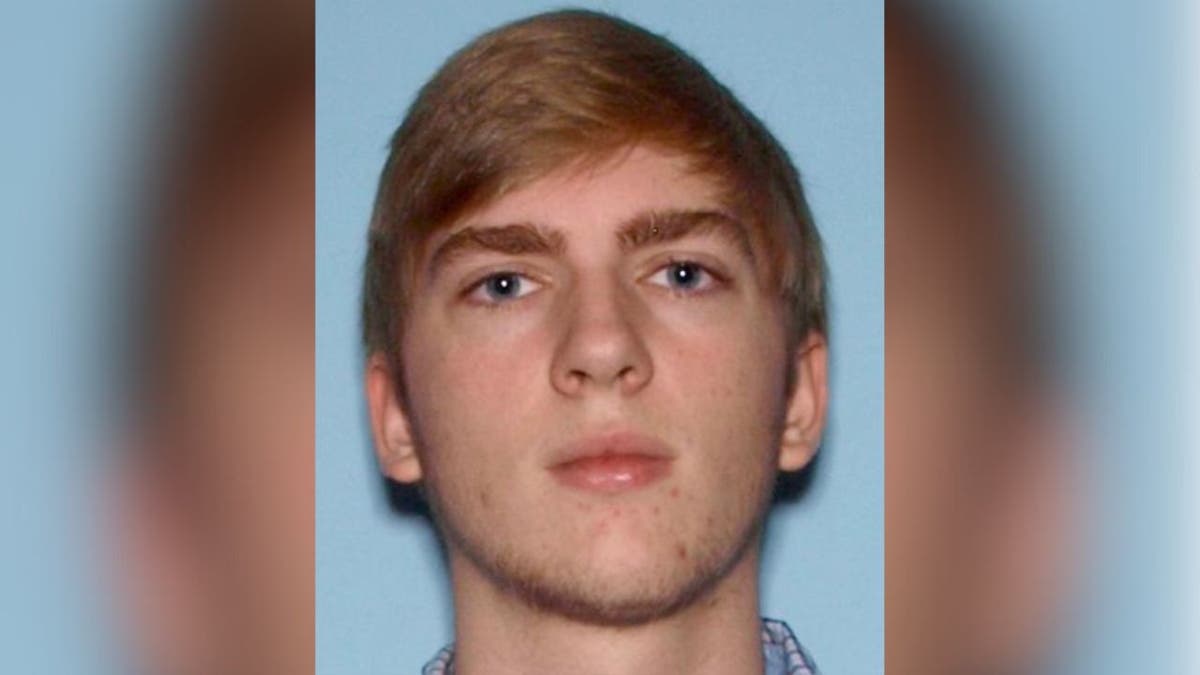
Patrick Joseph White, 30, is suspected of killing DeKalb County Police Department Officer David Rose, 33, shortly before 5 p.m., in an attack that saw him fire 200 rounds into six CDC buildings. (Georgia Bureau of Investigation)
In a September 2024 call, White told police his health had declined after receiving a COVID-19 vaccine and that his deteriorating condition had led to suicidal ideation. Officers said White stated he was in pain and had back surgery a decade ago. He claimed taking a gun from his father’s locker was “only a cry for help.”
After that incident, White was taken to Kennestone Hospital but refused mental health treatment on subsequent calls, per the report. Two other calls took place in April and July of this year.
Hosey said that for Friday’s attack, White broke into his father’s safe to get the guns, noting they had been locked away.
“All indications in our investigation was that they were secure and that he forced his way into the safe that contained the weapons,” said Hosey, adding that the suspect did not have a key to the gun safe: “He broke into it,” Hosey said.
Hosey said that during a search of his residence, authorities found documents expressing anger towards the COVID-19 vaccine. He said there were no direct threats made in the writing, but it was described as personal manifesto to “make the public aware” of his views.
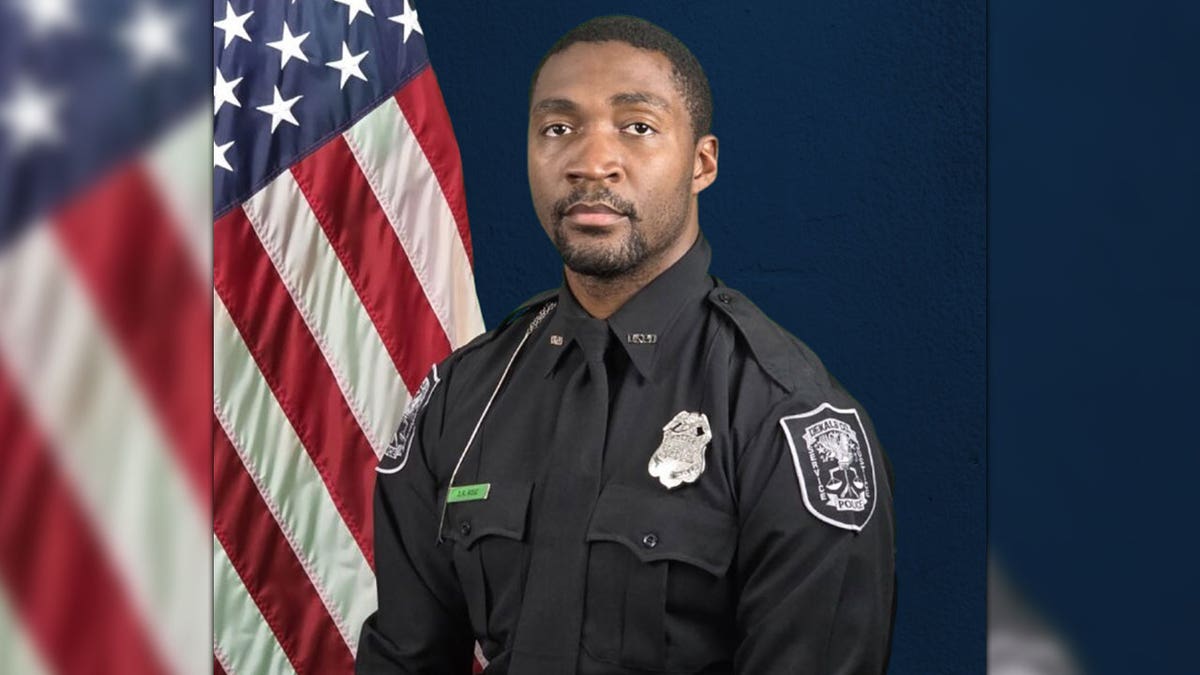
DeKalb County Police Department Officer David Rose was killed in a shooting outside the Centers for Disease Control and Prevention (CDC) campus in Atlanta on Friday. (DeKalb County Police Department)
“A search warrant executed at the residence of the shooter revealed written documentation that expressed the shooter’s discontent with the COVID-19 vaccinations,” Hosey said.
“I would describe it as more of a public awareness. There was no direct threat… but it was his making the public aware, in his words, of his discontent with the vaccines itself,” Hosey said in response to a reporter’s follow-up question.
Hosey said the materials are being reviewed by certified behavioral profilers and shared with the FBI.
White had been stopped by CDC security guards before driving to a pharmacy across the street, where he opened fire from a sidewalk, authorities said. The bullets pierced “blast-resistant” windows across the campus, pinning employees down during the barrage. More than 500 shell casings have been recovered from the crime scene, the GBI said.
In the aftermath, officials at the CDC are assessing the security of the campus and making sure they notify officials of any new threats.
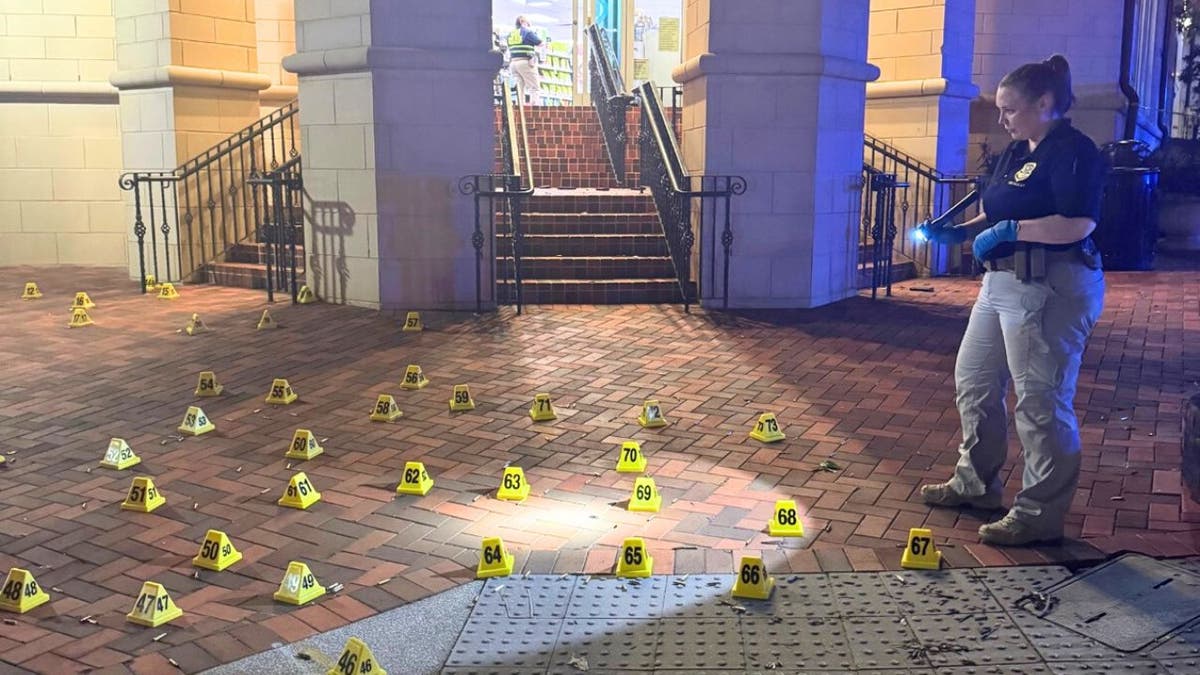
An investigator looks at the crime scene where a Georgia police officer was shot dead. (Georgia Bureau of Investigation (GBI))
U.S. Health Secretary Robert F. Kennedy Jr. toured the CDC campus on Monday, accompanied by Deputy Secretary Jim O’Neill and CDC Director Susan Monarez, according to a health agency statement. Kennedy also visited the DeKalb County Police Department, and later met privately with the slain officer’s wife.
Kenedy recently announced that the CDC will no longer recommend COVID‑19 vaccinations for healthy children or pregnant individuals and canceled 22 mRNA vaccine development contracts totaling roughly $500 million because he said the data showed that those vaccines fail to protect effectively against upper respiratory infections like COVID and flu.
